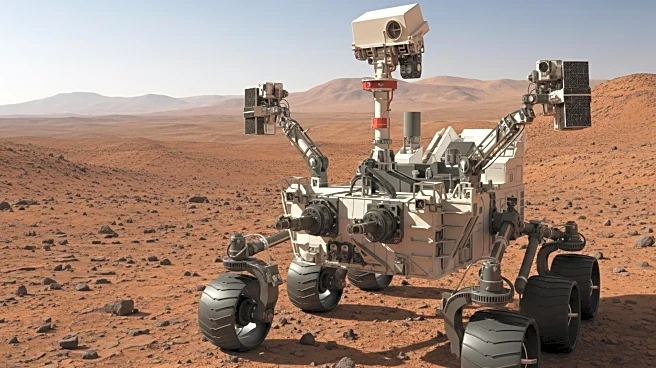What's Happening?
NASA's Perseverance rover has discovered potential biosignatures in the 'Sapphire Canyon' rock sample on Mars. The findings, published in the journal Nature, suggest signs of past microbial life processes. The sample showed evidence of past water and organic material, indicating possible chemical reactions by ancient life. The discovery follows a year-long peer-review process validating the data and analysis.
Why It's Important?
The discovery of potential biosignatures on Mars is a significant milestone in the search for extraterrestrial life. It provides valuable insights into the planet's habitability and geological history. The findings could influence future Mars exploration missions and scientific research, advancing our understanding of life's potential beyond Earth.
Beyond the Headlines
The discovery raises ethical and scientific questions about the implications of finding life on other planets. It highlights the importance of continued exploration and research to uncover the mysteries of the universe. The findings could inspire future generations to pursue careers in space science and exploration.









